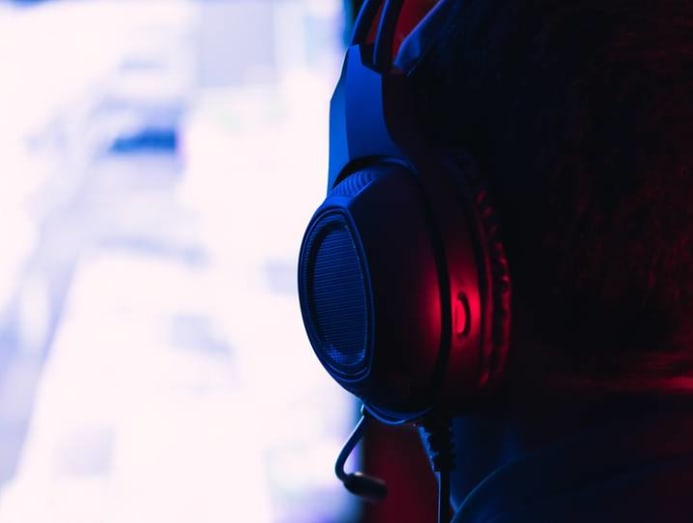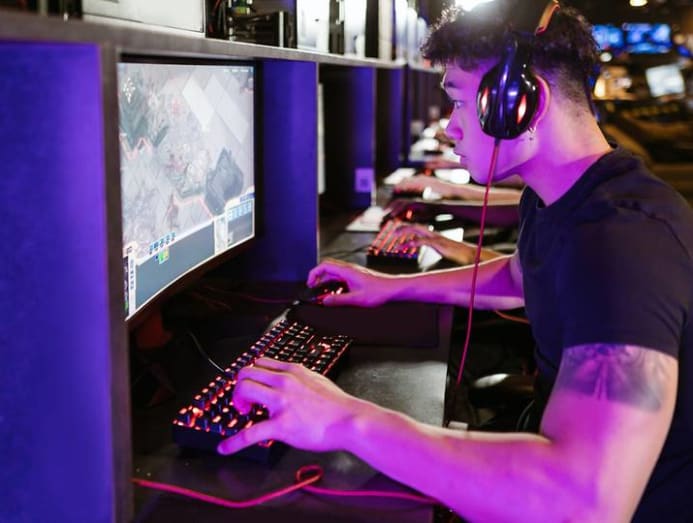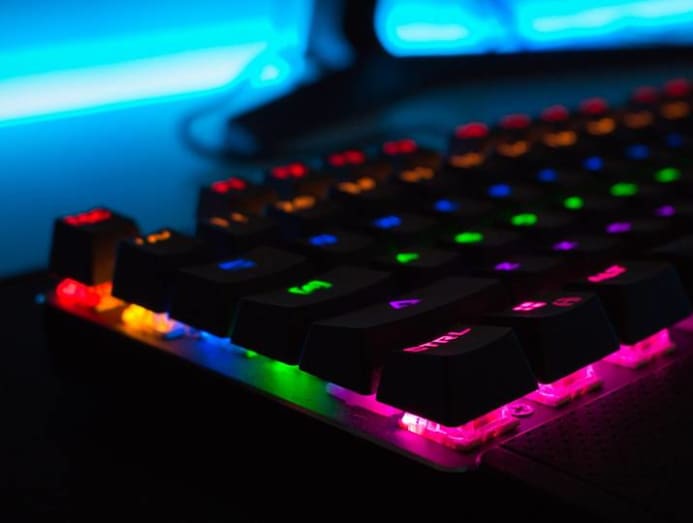Why South Korean gamers are 'deadly serious' about e-sports
The students ate lunch in silence before gathering in a dimly lit room packed with loftier-powered computers. There, coaches helped them learn to outmaneuver opponents in a digital fantasy world fraught with ambushes and monsters.
School was over past 5pm, only private practice continued well into the night – all in a hard solar day's work for the students at one of South Korea's many e-sports academies.
"I slumber simply 3 or 4 hours a day," said Kim Min-soo, 17, a educatee who wore a brace effectually his correct hand to lessen the pain from and so much gaming. "Merely I want to become a star. I dream of an e-sports arena packed with fans all rooting for me."
Students such every bit Min-soo have brought the same intense competitive energy ofttimes associated with S Korean didactics to their training at east-sports academies.

South korea is considered a birthplace of e-sports, just the highly selective multibillion-dollar industry is still frowned upon by many in the country. The academies accept worked to alter that image and give thousands of immature people a chance to pursue careers in a identify where gaming has long been seen every bit a mode of life.
"In Republic of korea, players must do homework on their game before playing it, because if they disrupt the efficiency of their team, they tin can be expelled," said Jeon Dong-jin, Korea caput of the American video game developer Blizzard Entertainment, during a recent forum in Seoul. "South Korean gamers are deadly serious."
E-sports is now the 5th-most popular future job among South Korean students, subsequently athletes, doctors, teachers and digital content creators, according to a survey by the Education Ministry terminal year. It will be a part of the Asian Games in 2022.
In South Korea, players must practice homework on their game before playing it, because if they disrupt the efficiency of their team, they tin can be expelled.
Tiptop players such every bit Lee Sang-hyeok, who goes past the gaming proper name Faker, earn as much fame and fortune every bit 1000-pop idols. Millions spotter them play over livestream. Before the pandemic, fans packed into e-sports arenas that looked similar a cross between a stone concert and pro-wrestling stadium.
The attraction can be hard to resist. Parents have dragged children to counselling for gaming addiction or to rehabilitation kick camps. When conscientious objectors ask to be exempted from Republic of korea's mandatory military service, officials volition investigate whether they play online games involving guns and violence.
Grades fall. Sometimes, students drop out of school to spend more time gaming. Withal, precious few will get the chance to brand information technology big.
The 10 franchised professional e-sports teams in South Korea competing in League of Legends, the most popular game hither, hire but 200 players full. Those who do not make the cut have few alternatives.

Lacking proficient grades – and often high school diplomas – gamers volition find themselves with limited job prospects. And dissimilar some American universities, South Korean schools practice non offer admission based on east-sports skills.
When Gen.G, a California-based e-sports company, opened its Gen.G Elite Esports Academy in Seoul in 2019, it wanted to address some of those challenges because "this is where most of the talent is", said Joseph Baek, programme manager at the Gen.Yard university. "South Korea is however considered the mecca of due east-sports."
The schoolhouse trains young South Koreans and other students on how to plough pro and helps gaming buffs find opportunities as streamers, marketers and data analysts. Together with educational company Elite Open up School, it opened an English-only programme that offers students a risk to earn an American loftier school diploma so they can apply to universities in the United States on e-sports scholarships.
Anthony Bazire, a 22-yr-old erstwhile Gen.Thousand academy educatee from France, said he had called South korea every bit his grooming ground because he knew the state had some of the all-time players. Today, superlative prize winners in League of Legends, Overwatch and StarCraft II are mostly Southward Koreans.
"When you run into people working hard, it pushes y'all to work hard," he said.
The Gen.One thousand programme, the first of its kind in South Korea, has even helped some students convince their parents that they made a smart career move.
In 2019, his second twelvemonth in high school, Kim Hyeon-yeong played League of Legends for 10 hours a day. His skills improved as he romped his way through the digital fantasy earth. That summer, he decided to become a pro e-sports player and quit schoolhouse.
"My parents were totally against it," said Kim, xix. "I told them that I would have no regrets, because this was the one thing I wanted to try in my life, throwing in everything I got."
His mother, Lee Ji-eun, 46, was then distressed that she lay in bed moaning. She eventually decided to back up her son later on he asked her one day: "Mum, what dream did you have when you lot were my age? Have yous lived that dream?"
Kim researched the Gen.Chiliad programme, which costs U.s.$25,000 (S$33,650) a year, and led his mother to the academy to convince her that he could find success every bit an e-sports professional person. He cleared a big hurdle to his dream this year past winning admission, based on his online game skills, into the Academy of Kentucky.

Min-soo, the pupil who dreams of condign an e-sports star, first felt the electrifying vibe of an e-sports arena when he was in middle schoolhouse. Since 2019, he has woken upwards at 6am every twenty-four hour period, taking a two-hour trip via coach and subway to the Gen.G university. He returns dwelling house at eleven.30pm and then practises more, seldom going to bed before 3am.
This twelvemonth, he was finally considered proficient enough to get-go taking tests to become a trainee on a pro team.
"It's a hard and lonely life, because you lot have to give up everything else, like friends," he said. "But I am happiest because I am doing what I relish the near."
Past Choe Sang-Hun © The New York Times
This article originally appeared in The New York Times.
https://www.nytimes.com/2021/06/nineteen/world/asia/south-korea-esports.html
Source: https://cnalifestyle.channelnewsasia.com/entertainment/south-korean-gamers-e-sports-academies-249271
0 Response to "Why South Korean gamers are 'deadly serious' about e-sports"
Post a Comment